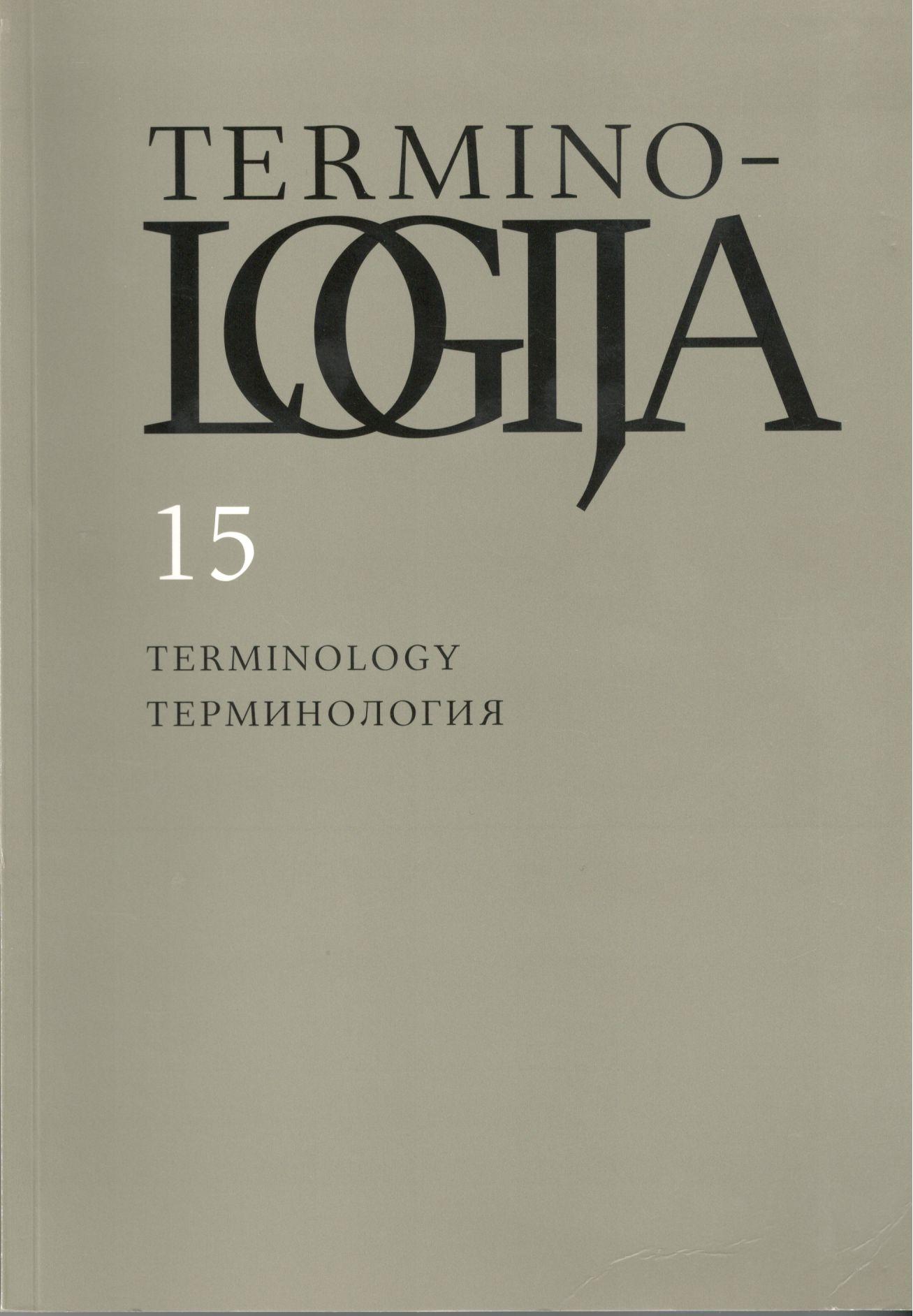Variantiniai statybos liaudies terminai Lietuvių kalbos žodyne
Variant folk terms of construction in the Dictionary of Lithuanian
Author(s): Robertas StunžinasSubject(s): Language and Literature Studies, Lexis, Descriptive linguistics, Baltic Languages, Philology
Published by: Lietuvių Kalbos Institutas
Keywords: variants; terms of construction; dictionary; folk terms;
Summary/Abstract: This article deals with variant folk terms of construction in the electronic version of Lietuvių kalbos žodynas (Dictionary of Lithuanian) (Vilnius, 2005). It was observed that the majority of variants are variants of pronunciation – accentuation variants and phonetics variants. The group of variants of accentuation mainly consists of variants where the accent is placed differently, for instance, dúonkepis – duonkepỹs (bread stove). Variants with the same place of accent, but with a different intonation are noticeably rarer, for instance, añtpamatis – ántpamatis (rise around foundations).A large part of accentuation variants are variants with normative terms, for instance, gárvilka – garvilkà (steam duct). Variants of non-normative terms are variants of the modern language words or terms not used in modern language, for instance, ãpušė – apuš (asp). A significant proportion of variants are barbarisms and hybrids, for instance, ãkselis – akselỹs (chopped straw).The group of phonetic variants mainly consists of terms concordant to norms of modern Lithuanian and variants with quantitative and qualitative differences of vowels, for instance, kljus – klỹjus (glue).The group of morphological variants consists of terms with the same root and meaning, but with differences in inflectional and derivational affixes and a variety of morphological categories. In this group terms with differences in gender (palubỹs – palub) (place under a ceiling) prevail, terms with differences in number (drobỹnos – drobynà) (ladder) are rather rare.In the group of variant terms with different inflectional affixes the majority of terms have inflexional endings -ė and -(i)a (priemen – priemenià) (entrance hall) as well as -as and -is (sienójas – sienójis) (log). In the group of derivational variants the majority of terms are derivates with prefixes prie-, prieš- and už- and their dialectal variants, for instance, (pregonkis – prýgonkis (porch), preškaktis – prýškaktis (stove front), užùgardė – ažùgardė (mow)) and derivates with the suffix -ininkas and its variants (mrininkas – mūrinykas) (bricklayer).
Journal: Terminologija
- Issue Year: 2008
- Issue No: 15
- Page Range: 111-130
- Page Count: 20
- Language: Lithuanian

